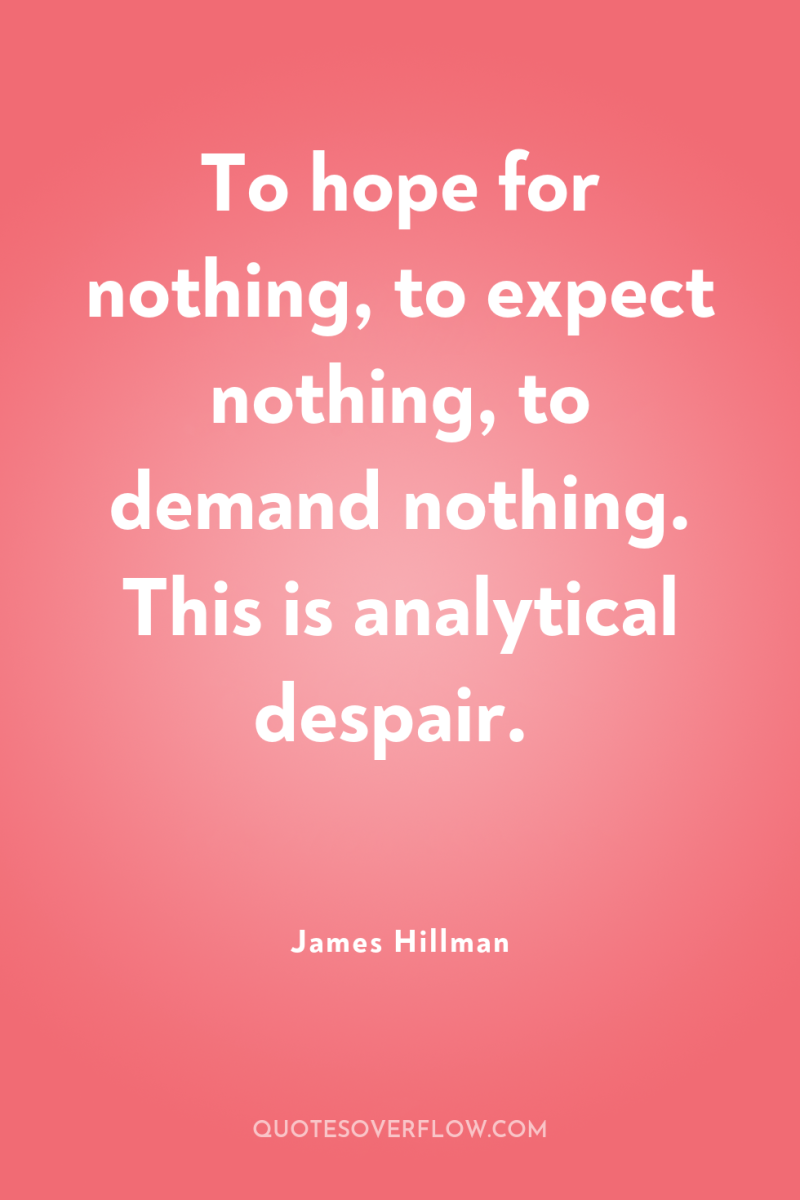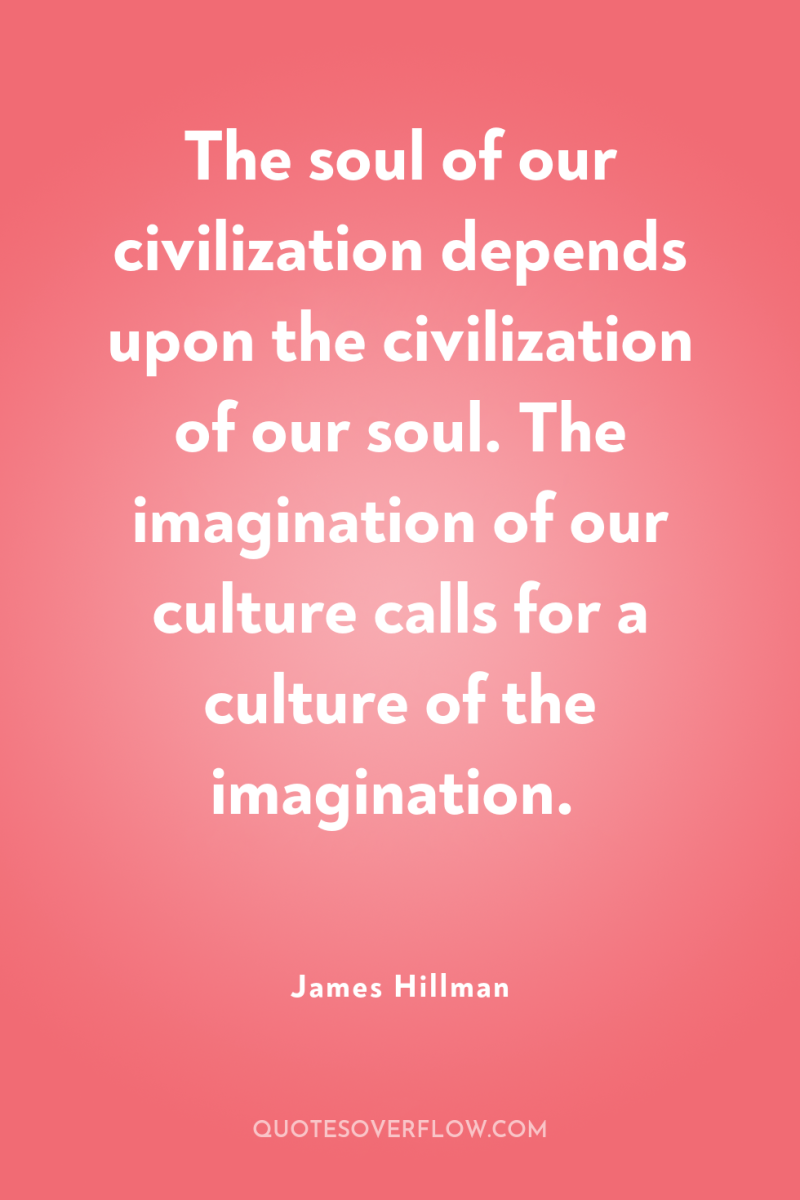
1
To hope for nothing, to expect nothing, to demand nothing. This is analytical despair.James Hillman

2
I can no longer be sure whether the psyche is in me or whether I'm in the psyche...James Hillman
3
..you find your genius by looking in the mirror of your life. Your visible image shows your inner truth, so when you're estimating others, what you see is what you get. It therefore becomes critically important to see generously, or you will get only what you see; to see sharply, so that you discern the mix of traits rather than a generalized lump; and to see deeply into dark shadows, or else you will be deceived.James Hillman

4
The soul of our civilization depends upon the civilization of our soul. The imagination of our culture calls for a culture of the imagination.James Hillman

5
What door is opened into soul through our wounds.James Hillman
6
Character forms a life regardless of how obscurely that life is lived and how little light falls on it from the stars.James Hillman
7
Psychology ideally means giving soul to language and finding language for soul.James Hillman
8
Fatalism accounts for life as a whole. Whatever happens can be fit within the large generality of individuation, or my journey, or growth. Fatalism comforts, for it raises no questions. There's no need to examine just how events fit in.James Hillman
9
Each life is formed by its unique image, an image that is the essence of that life and calls it to a destiny. As the force of fate, this image acts as a personal daimon, an accompanying guide who remembers your calling. The daimon motivates. It protects. It invents and persists with stubborn fidelity. It resists compromising reasonableness and often forces deviance and oddity upon its keeper, especially when neglected or opposed. It offers comfort and can pull you into its shell, but it cannot abide innocence. It can make the body ill. It is out of step with time, finding all sorts of faults, gaps, and knots in the flow of life - and it prefers them. It has affinities with myth, since it is itself a mythical being and thinks in mythical patterns. It has much to do with feelings of uniqueness, of grandeur and with the restlessness of the heart, its impatience, its dissatisfaction, its yearning. It needs its share of beauty. It wants to be seen, witnessed, accorded recognition, particularly by the person who is its caretaker. Metaphoric images are its first unlearned language, which provides the poetic basis of mind, making possible communication between all people and all things by means of metaphors .James Hillman
10
If there were a god of New York, it would be the Greek's Hermes, the Roman's Mercury. He embodies New York qualities: the quick exchange, the fastness of language and style, craftiness, the mixing of people and crossing of borders, imagination.James Hillman
11
We need to have an educational system that's able to embrace all sorts of minds, and where a student doesn't have to fit into a certain mold of learning.James Hillman
12
The older people that one admires seem to be fearless. They go right out into the world. It's astounding. Maybe they can't see or they can't hear, but they walk out into the street and take life as it comes. They're models of courage, in a strange way.James Hillman
13
It's very hard to know what wisdom is.James Hillman
14
The culture is going into a psychological depression. We are concerned about our place in the world, about being competitive: Will my children have as much as I have? Will I ever own my own home? How can I pay for a new car? Are immigrants taking away my white world?James Hillman
15
We approach people the same way we approach our cars. We take the poor kid to a doctor and ask, What's wrong with him, how much will it cost, and when can I pick him up?James Hillman
16
I don't think anything changes until ideas change. The usual American viewpoint is to believe that something is wrong with the person.James Hillman